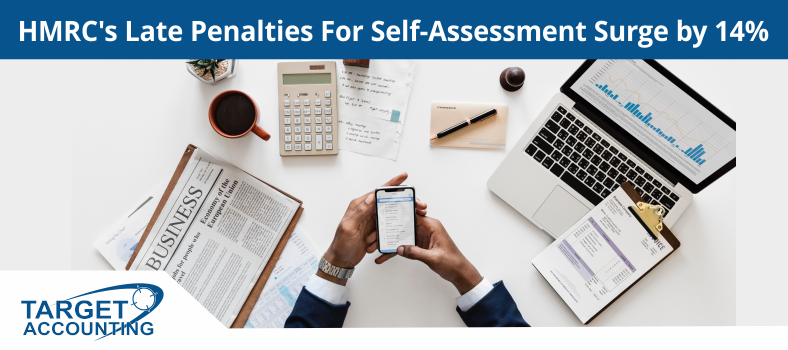With the ever-increasing rise number of start-ups and self-employment options, the number of non-tax payers has been on the rising. This issue has led to late payments, zero tax return files, and penalising the defaulters who has further intensified to become a severe and urgent matter of concern.
The HMRC penalty law is a big-time shocker to the self-assessors, and the stances of let-off against the HMRC has been reduced on the grounds for “reasonable excuses.” As per the latest statistic reports, there has been an increase of 14% in the number of self-assessors to be penalised starting from 291,000 in 2015-16 to 331,000 for the 2016-17 tax year. It is imperative to file the tax return. In case the deadline is missed due to any unforeseen circumstances, the self- assessor is bound to get a penalty.
The new self- assessors on the field have come up with new struggles such as their inability to understand and plan their tax returns before the deadline to avoid all sorts of penalty. There are various types of penalties levied by the HMRC based on the nature of the error made while finishing self-assessment tax returns.
The taxpayers have listed various issues against the working of HMRC, which breaks the flow during the tax filing procedures.
“Officers have turned hostile.”
The lack of humanity and respect in the behaviour of HMRC officials towards the self-assessors is considered to play a crucial role and has further decelerated the whole process. Many taxpayers have claimed that they have no intention to skip the tax return sessions. They have registered the inhumane aspect to be the reason for the delay or non-payment.
According to them, HMRC officials are unable to differentiate between the willingness and non-willingness to pay the taxes. Due to this lack of information, the officials have categorised every case as the case of avoidance.
Lack of understanding
The HMRC have turned cold-shoulder on the taxpayers, even in case of emergencies. They have neglected every appeal made to them based on genuine and valid reasons.
Rigidity at its peak
The HMRC has adopted a non-negotiable “No excuse” policy according to this policy if the taxpayer is unable to file the return in time due to unfortunate circumstances like illness, untimely receiving of HMRC reminders or bereavement. HMRC wish to straighten the casual attitude of taxpayers by using strict penalty as an essential measure.
Irregular cash flow
The constant change in the economic status of every individual is the biggest reason for the non-payment of taxes. The unplanned cash crunch limits the self-assessor ability to fulfil the lawful process.
The new over-due taxation policy
The rules have further been stringent by adding more percentages to the unpaid tax amount.
- If the self-assessor has delayed the process by more than 30 days, an extra 5 % fine is levied on the outstanding tax from HMRC.
- If the delay ended up to six months, another 5 % is added. Similarly, if the non-tax payment continues for twelve months, 5% is again added, making it quite unbearable for the taxpayer.
Final thoughts of taxpayers
The taxpayers demand that the actual tax amount should be briefly pointed out to simplify the taxpaying procedure. You can come across instances where the taxpayers are unable to identify- what has to be filed and what fraction of income has to be paid. They fail to understand that other than filing tax returns, and they also have to make the necessary payments. Hence, the taxpayer is confused between both the processes.


